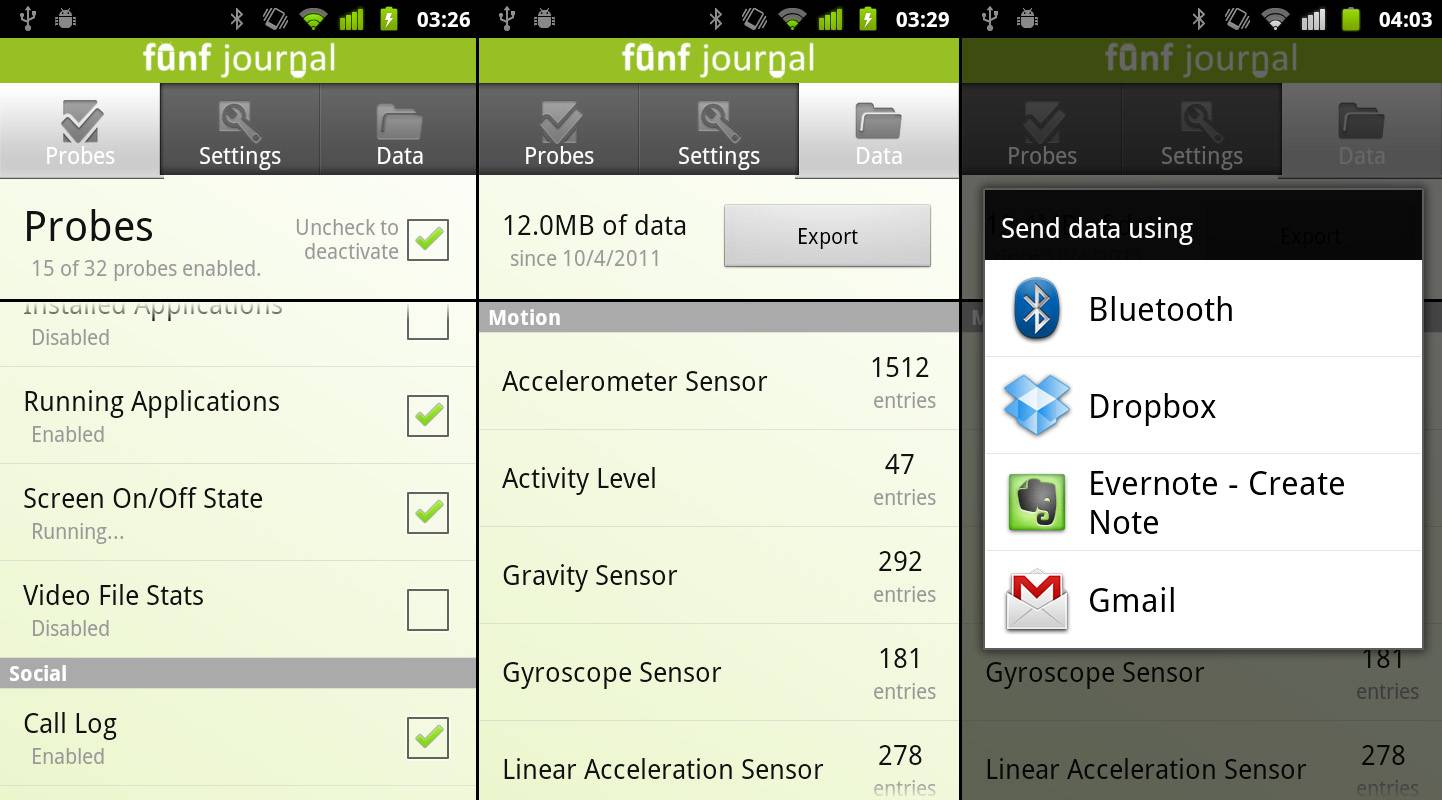
You’re all familiar with the accelerometer inside your Android phone, but what you might not know is that the scientists at the Massachusetts Institute of Technology have been using this and other data inputs to learn new things about the way we move and live. Now the MIT Media Lab is making its tracking technology available to all, allowing users to reach the same conclusions on a personal and social level. The new app, Funf Journal (give ’em a break, they’re geniuses), can be downloaded and installed directly from MIT.
In addition to the app, Funf can catalog and export movement and geographical data to a desktop computer, allowing users to chart and graph a variety of data point so their physical and geographical movement. Similar systems have been used for preventative medicine and the like, but the researchers behind the project are excited to see what the public can do with the tools they’ve created. “We’re hoping to help build a community around the framework,” said PhD student Nadav Aharony.
Even though sensors in smartphones aren’t all that sophisticated by scientific standards, the software in Funf Journal can differentiate between different kinds of movements. For example, the sensor analysis can tell the difference between a brisk walk and the normal jostling on a bus or subway. It can track user’s movements all day, generating a readout of the kind of physical benefit they’re getting out of their activity and a map of where and when they were. Imagine the applications for exercising services like EndoMondo.
If you’d like to try Funf, you can download the Android app and the desktop tools from the source link above now. UPDATE: Now available in the Android Market too!
[via PhysOrg]










The app is also available in the Android Market!
https://market.android.com/details?id=edu.mit.media.funf.journal
Thanks, Nadav.